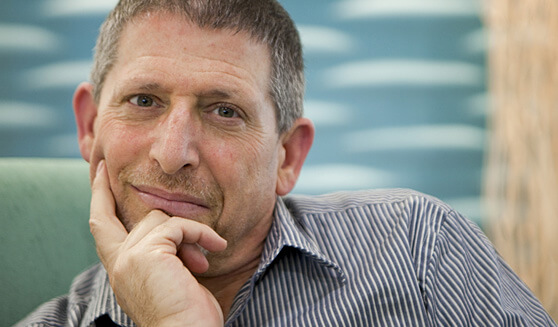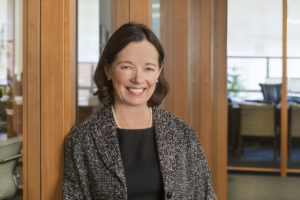 Families Finding Peace and Justice
Families Finding Peace and Justice
Many thanks to our speakers, volunteers, and everyone who attended the WA AFCC 8th Annual Conference on March 23, 2019 for making it a wonderful experience.
 Families Finding Peace and Justice
Families Finding Peace and JusticeMany thanks to our speakers, volunteers, and everyone who attended the WA AFCC 8th Annual Conference on March 23, 2019 for making it a wonderful experience.

Robert A Simon, PhD

Benjamin Garber, PhD

Catherine Wright Smith, JD

Valerie Villacin, JD
In the morning, there were three one-hour plenary sessions: Catherine Wright Smith, JD, and Valerie Villacin, JD; Benjamin Garber, PhD; and Robert Simon, PhD.
During the afternoon, participants selected a four-hour intensive advanced master class with either Benjamin Garber, PhD, or Robert Simon, PhD.
All conference participants were also invited to register for a reunification case study with Dr. Benjamin Garber on Sunday, March 24.

Review of appellate court decisions on parenting issues over the last five years. The topics addressed by the appellate courts include: restrictions on parents under RCW 26.09.191; child relocation under RCW 26.09.520; non-parental custody and de facto parentage; domestic violence; and litigation discovery related to parenting.
Learning Objectives:

Adult conflict, separation, and divorce can compromise a child’s emotional security with long term developmental sequelae. Forced to migrate between homes, triangulated into the conflict, and sometimes pressured to take sides, anxiety builds, identity is reshaped, and the quality of these children’s futures is at risk.
As family law professionals, we work hard to assure that children’s access to “emotional fuel” continues uninterrupted by implementing child-centered therapies and crafting developmentally-attuned parenting plans. This presentation focuses on the power of the transitional object—those portable, idiosyncratic blankets and stuffed animals and trinkets that communicate a caregiver’s love while apart—both to help children manage separation and to move toward healthy autonomy.
Building on a dramatic Canadian divorce case (Chomos v Hamilton, 2016 ONSC 5208), the concept of the transitional object is defined, and its role in the course of healthy development is explored and applied to the needs of children caught up in high conflict divorce. Transitional objects are discussed as portable sources of emotional fuel, a metaphor that invites a new and very practical perspective on understanding and serving the best interests of these children.
This PowerPoint and relevant materials, including the court’s ruling in Chomos are available to conference participants in advance of the conference via Dr. Garber’s website at http://www.familylawconsulting.org/WashState%202019/Seattle2019.html. Participants are invited to bring their own preferred blankies and teddy bears to this presentation.
Learning objectives:

When families separate and divorce, the overwhelming majority of families with children are able to reach agreements and understandings about parenting plans and child sharing/child custody on their own or with some assistance from attorneys and clinical mental health professionals.
However, the families that litigate and have dispute over these issues—the very families that we interact with and serve, place the well-being of the family and of the children in the hands of professionals such as judicial officers, attorneys, and mental health professionals.
They do so based on the assumption that professionals are wise, professionals are experienced, and that professionals truly know what they are doing. They do so assuming that the recommendations, guidance, and orders we make have behind them some degree of known efficacy and positive impact. But do they?
What do we really know about the efficacy of the various interventions we recommend and order? What happens to families when the natural autonomy and independence of the family system is impacted by litigation? Especially in those cases which are higher in conflict and in which repeated rounds of litigation ensue, what do we know about our impact on the family?
This inspirational and cautionary plenary session will explore these issues and, hopefully, help family law professionals approach their work with more humility, more respect for the family, and with a greater awareness of the consequences—both intended and unintended—that we have on the family.
Learning objectives:
Approaching the “best interests” standard through the lens of the child’s need for emotional fuel invites new and creative approaches to a number of common areas of family law practice.
Dr. Garber suggests that early attachment relationships and social capital more generally provide children with critical emotional fuel and build resilience against anxiety. Our job, as family law professionals, is to assess where and how each child gets that fuel and to intervene both through therapies and judicial rulings to maximize those opportunities.
These concepts are applied to four specific areas of practice:
This PowerPoint and relevant materials are available to conference participants in advance of the conference via Dr. Garber’s website at www.familylawconsulting.org/WashState%202019/Seattle2019.html.
Learning objectives:
There will be a 15-minute break during the Advanced Master Class.
No matter how hard we try to approach our work with neutrality and objectivity, the fact that we are human and that we have human brains leads us to bring to our work biases, both known and not known.
Because bias is the greatest risk to the integrity and usefulness of the work we do, becoming aware of our biases, especially implicit biases and cognitive biases, is essential to doing our work as well as we can.
This intensive and interactive/experiential Master Class will explore cognitive and implicit bias. We will explore how to recognize those biases you are most prone to, and examine teach de-biasing strategies.
Be prepared for a stimulating, enlightening, and even surprising Master Class.
Learning Objectives:
There will be a 15-minute break during the Advanced Master Class.
Continuing Education Credits for WA AFCC 2019 Annual Conference:
© 2025 · WA AFCC Theme by HB-Themes.